Are you considering entering a franchise agreement and feeling a bit overwhelmed by the legal jargon? You're not alone! Many prospective franchisees find themselves navigating complex third-party agreements that can significantly impact their business journey. In this article, we'll break down the essential elements of these agreements and highlight key factors to considerâso keep reading to ensure you're fully prepared and informed!

Legal compliance and regulatory requirements
Reviewing franchise third-party agreements is crucial to ensure legal compliance and adherence to regulatory requirements. Key aspects include evaluating franchise disclosure documents (FDD), which detail obligations and rights of franchisees and franchisors, and must comply with the Federal Trade Commission (FTC) regulations outlined in the Franchise Rule, requiring clear and accurate information. Furthermore, adherence to state-specific laws, such as California's Franchise Investment Law, is essential, given its stringent requirements on registration and disclosure. Contractual clauses should also be scrutinized for compliance with the Uniform Commercial Code (UCC), ensuring enforceability in all relevant jurisdictions. Additionally, it is imperative to verify that the agreements align with international trade regulations if operating across borders, particularly involving tariffs and trade agreements stipulated by organizations such as the World Trade Organization (WTO). Compliance assessments should encompass agreements related to operational practices, advertising expenditures, and supply chain regulations to mitigate risks of non-compliance, which can lead to penalties or disputes.
Intellectual property rights and protection
Intellectual property rights (IPR) are crucial in franchising agreements to safeguard proprietary assets such as trademarks, trade secrets, and copyrights. Franchisors must ensure that their brand image, represented by registered trademarks like logos or slogans, is protected from unauthorized use by third parties. Additionally, confidentiality clauses should define the protection of sensitive information, preventing franchisees from sharing trade secrets without prior consent. Compliance with relevant regulations, such as the Lanham Act (U.S. law governing trademark registration and protection), is essential for enforcing IPR. Criteria for monitoring and enforcing these rights must be established, including periodic audits and guidelines for franchisees to maintain brand consistency. Finally, the agreement should outline the resolution process for potential infringements to uphold the integrity of the franchise network.
Financial terms and revenue model
A franchise third-party agreement must meticulously outline financial terms and the revenue model to ensure clarity and mutual profitability. Key components include initial franchise fees, which can range from $15,000 to $50,000 depending on the franchise's brand reputation and market presence. Ongoing royalties, typically between 4% and 8% of gross sales, should be specified, alongside any advertising contributions that might range from 1% to 5%. Additionally, clear definitions of gross sales must be provided, specifying the exclusions for items such as discounts, refunds, and sales tax. Performance benchmarks tied to the revenue model, like minimum sales guarantees, may be outlined to incentivize franchisee success. Terms surrounding the duration of the agreement, usually spanning 5 to 20 years, should emphasize renewal options and conditions, while details regarding any required financial reporting practices could enhance transparency and accountability. Understanding the breakdown of these financial elements is crucial for both the franchisor and franchisee to foster a successful long-term partnership.
Brand standards and operational guidelines
Franchise third-party agreements, such as those governing food service or retail partnerships, require strict adherence to brand standards and operational guidelines to maintain consistency across various outlets. These standards outline essential criteria for quality, customer service, and product offerings that align with the brand's identity, ensuring that every location reflects the same commitment to excellence. Operational guidelines detail processes for inventory management, employee training, and marketing strategies, allowing franchisees to operate effectively within the established framework. Brand standards may include specifications such as menu items, packaging design, or logo usage, while operational guidelines provide a roadmap for annual evaluations and compliance checks. Compliance with these agreements is critical to preserving brand reputation and customer trust across all franchises, affecting both financial performance and customer satisfaction metrics.
Exit strategy and termination clauses
An exit strategy within franchise third-party agreements plays a critical role in ensuring both parties understand the conditions under which the partnership can be dissolved. Clear termination clauses outline the process for ending the agreement, detailing requirements such as notice periods (often ranging from 30 to 90 days), financial obligations upon termination, and responsibilities related to asset return. Additionally, circumstances warranting termination, like breach of contract or failure to meet performance benchmarks, should be explicitly stated, providing a roadmap for addressing issues without prolonged disputes. The inclusion of post-termination obligations, including confidentiality agreements and non-compete clauses, can also safeguard proprietary information and market interests after the partnership ends. Comprehensive review of these sections is essential for reducing risks and clarifying rights before entering or exiting the franchise relationship.

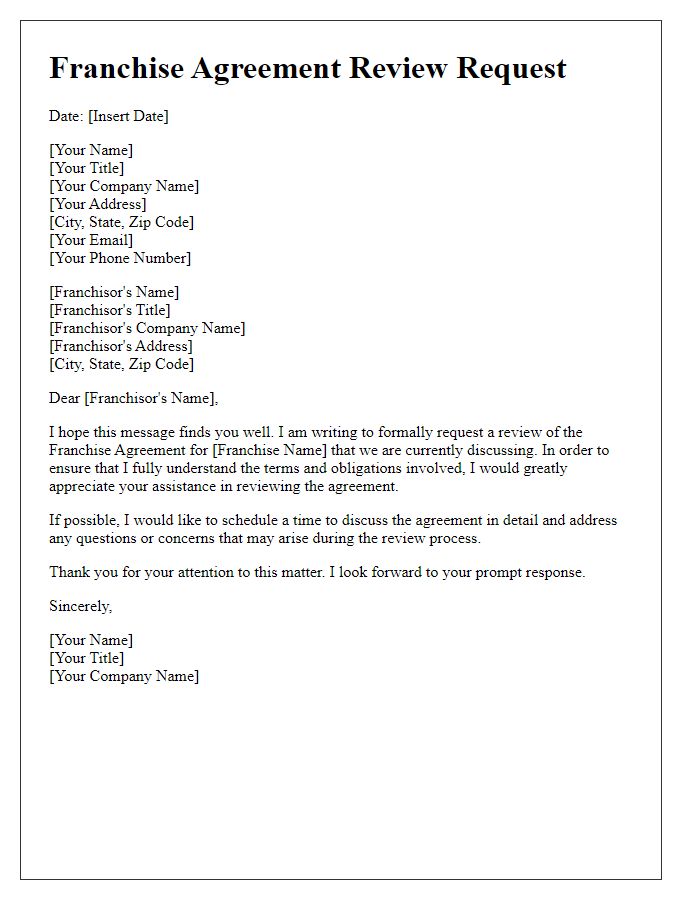
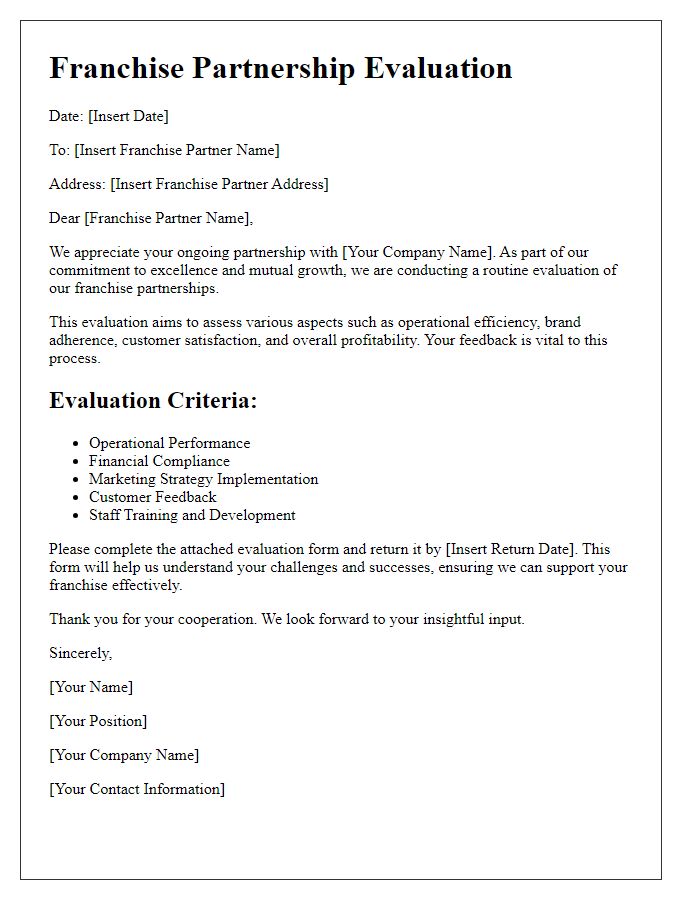
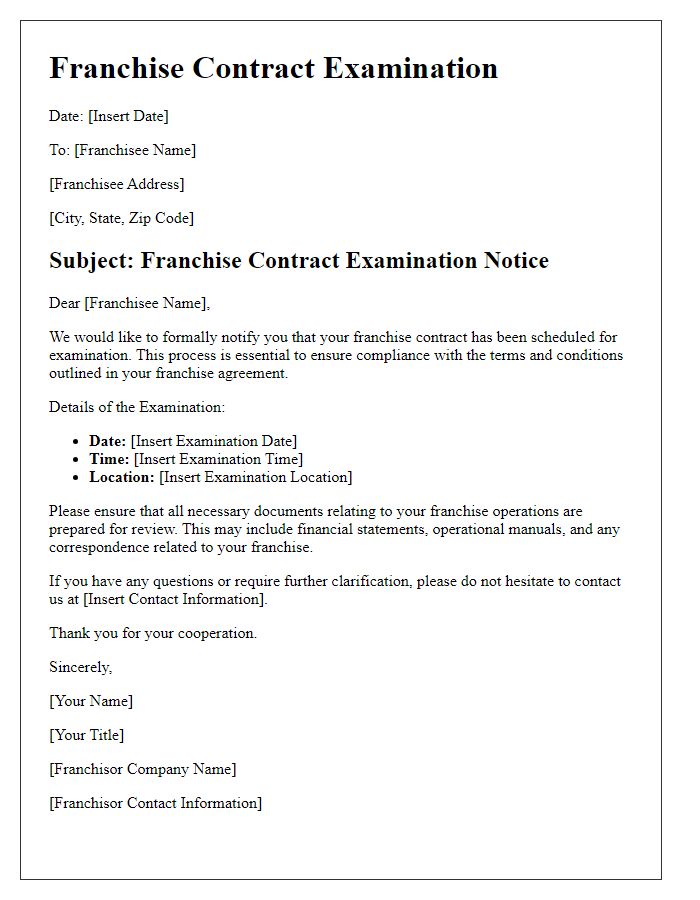
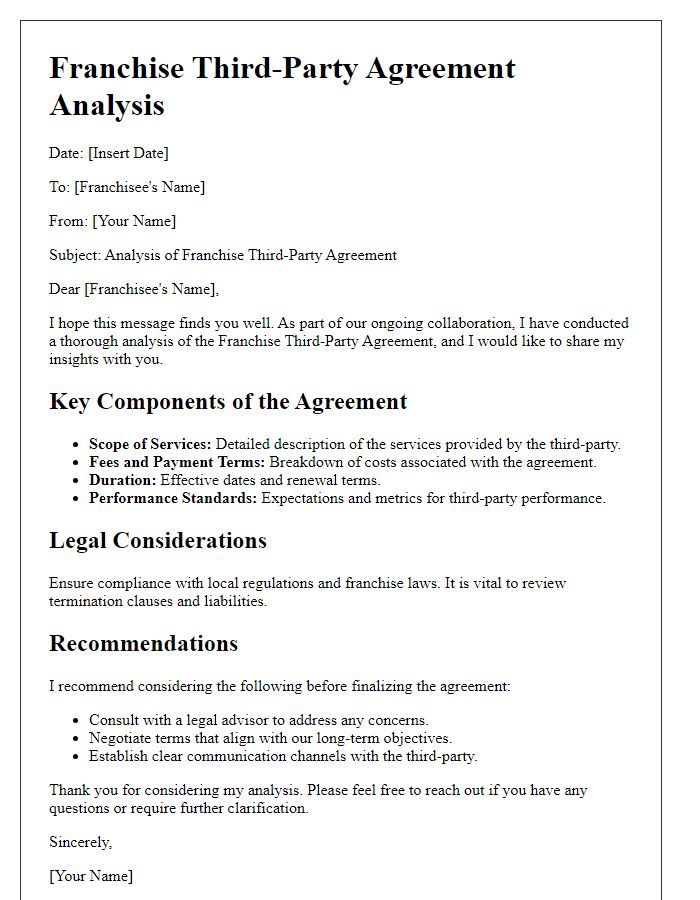

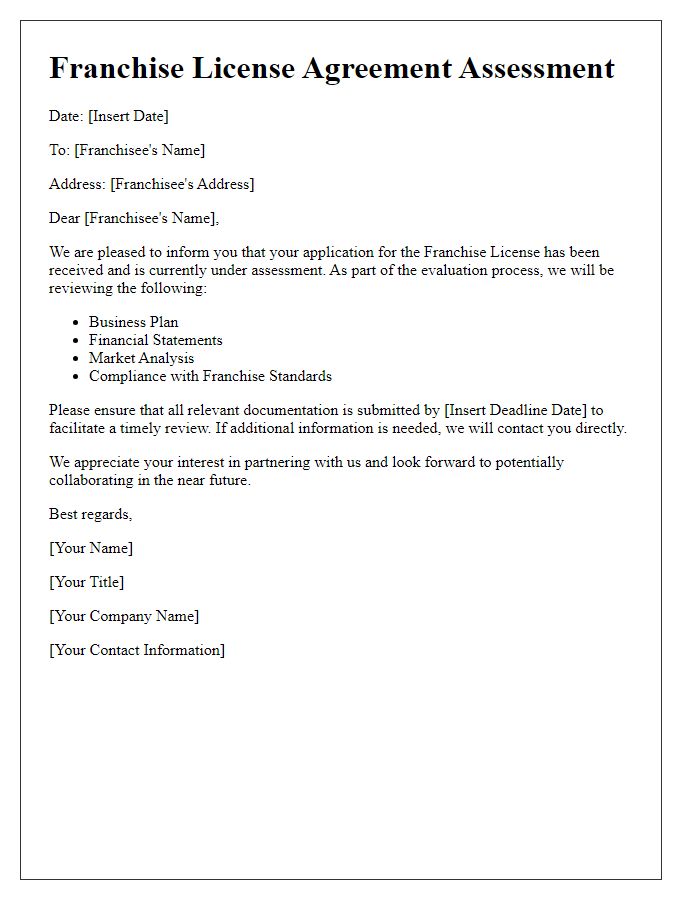
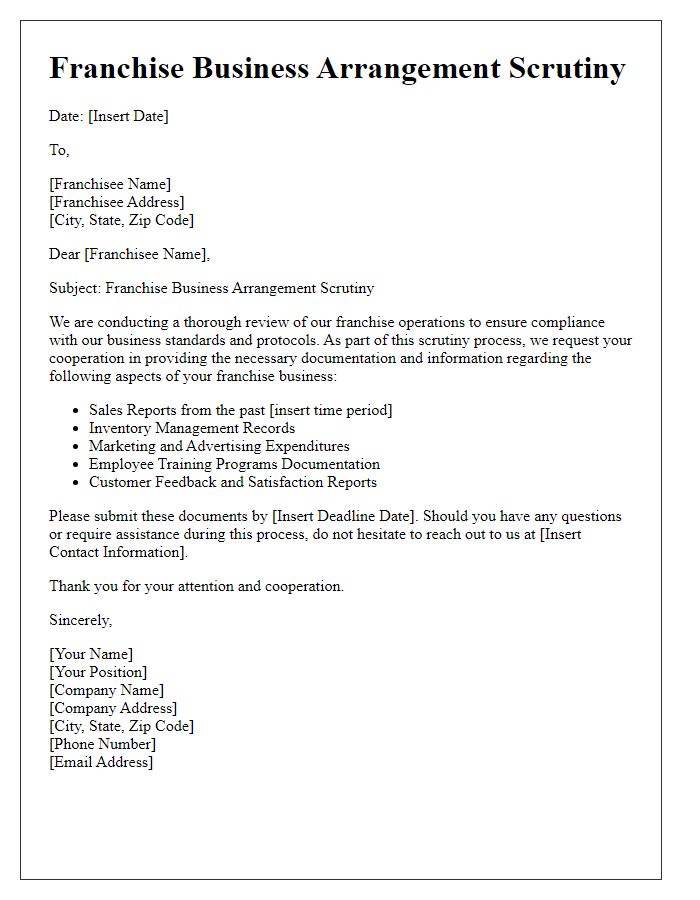
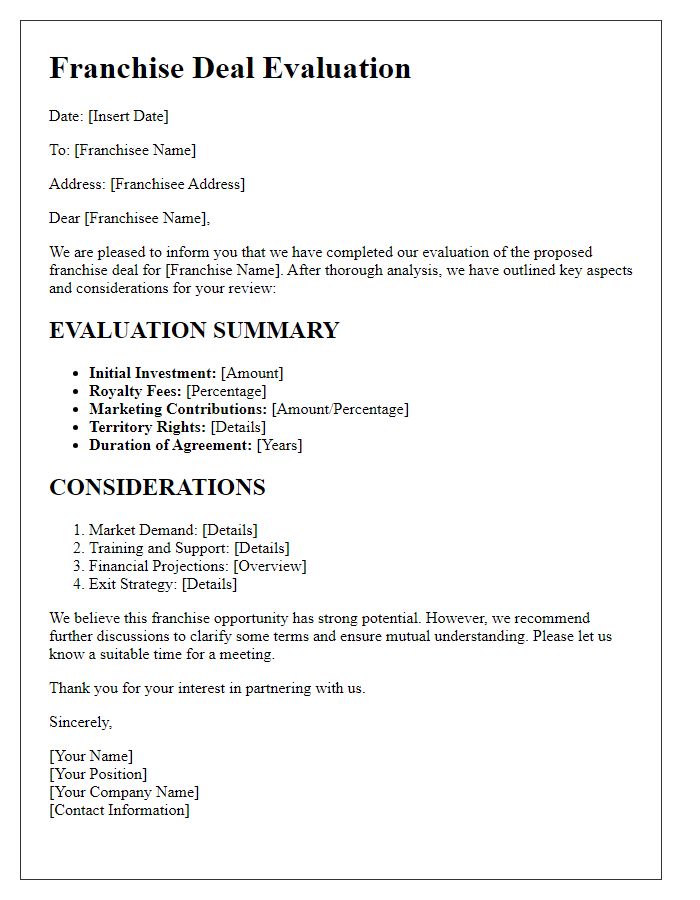
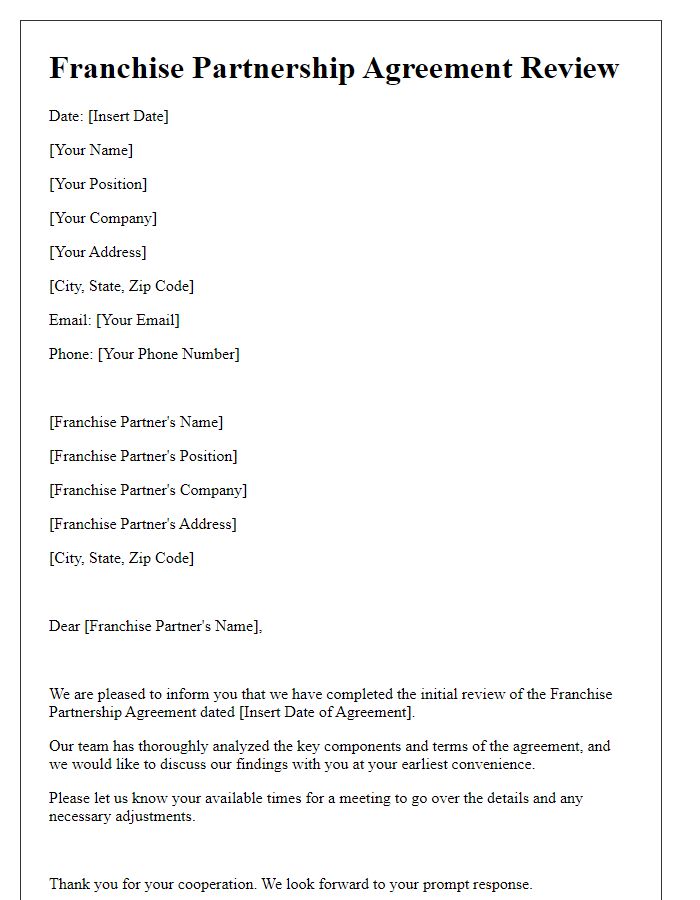
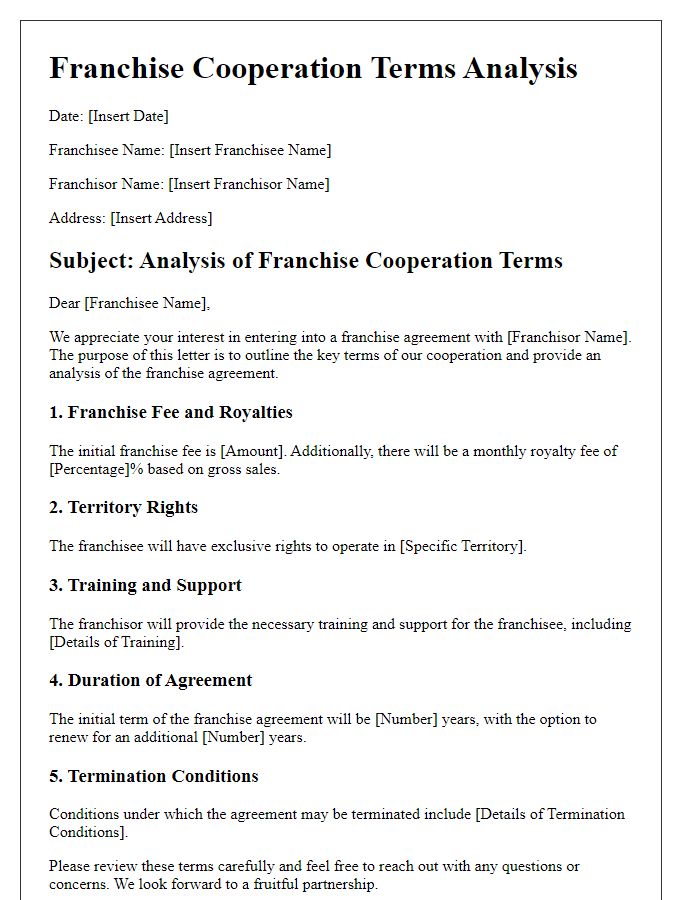


Comments